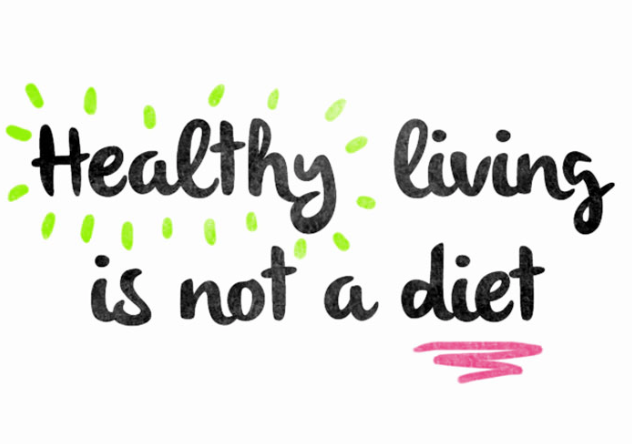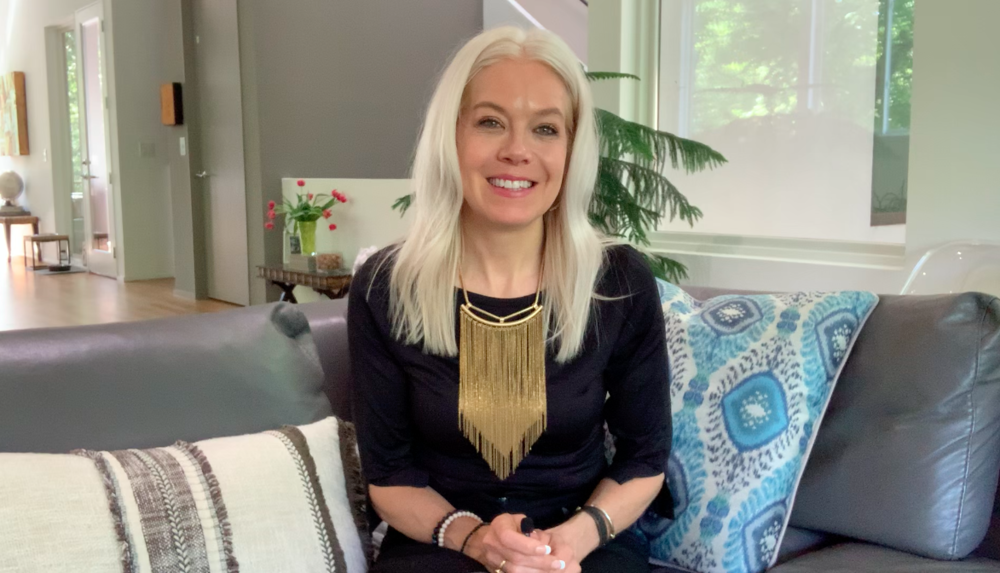
The number one concern with jumpstarting your intuitive eating journey is fear of weight gain. This is a very normal reaction. In this post I’m going to discuss what intuitive eating is, what the research shows, what you can expect, and share some of my personal experience with the intuitive eating principles as well as mindfulness and mindful eating.
Intuitive Eating is the medical nutrition therapy framework to help you divorce yourself from diet culture (link to blog on diet culture) and help heal any disordered eating behaviors and eating disorders.
This therapeutic approach is evidence-based and was created by two innovative and progressive dietitans, Evelyn Tribole, MS, RDN,CEDRD-S and Elyse Resche MS, RDN, CEDRD-S, Fiadep, FADA, FAND.
The most commonly asked questions about intuitive eating include:
- Can intuitive eating help you lose weight (or will I gain weight)?
- Can intuitive eating help with binge eating?
- Is intuitive eating healthy?
To properly answer those questions, we first have to consider your body, your weight, and the current research on effectiveness of diets as well as intuititve eating and mindful eating.
People who engage in diet behaviors and focus on weight loss but find themselves burned out on the restrictiveness of diets want to know if intuitive eating will cause weight gain (or make them “fat”). They want to know what they are getting into before diving in.
What diets fail to warn us is about weight rebound. Remember the highly controversial show The Biggest Loser? A study from US National Institute of Diabetes and Digestive and Kidney Diseases tracked fourteen of the television show contestants for six years after appearing on the reality program in 2016.
We watched these contestants sweat through intensive exercise and diet in a race to lose weight. Each contestant lost at least 50 pounds during their time – one couple dried a jaw-dropping 200 pounds total.
However, at the follow-up study the average weight regain was about two-thirds (around 35 pounds) of what they had lost while on the show; many ended up even heavier than when they started the show.
So what happened?
Why do so many people who go on diets fail, gaining back the weight they lost and often even more? There’s a pattern: with diet after diet after diet – it’s harder to keep it off than to lose weight in the first place.
While this might sound incredibly disheartening (and crazy-making), the research team discovered the issue by studying the contestants six years after they were on the show and discovered that their metabolic rate had significantly shifted and was much lower than expected (burning at least 400 calories LESS than the researchers’ prediction model estimated).
It’s normal for the metabolic rate to decrease with weight loss, but researchers didn’t anticipate this dramatic of a dip. Extreme weight loss, chronic dieting, and weight cycling (ie: gaining and losing weight especially from going on and off diets) are the biggest predictors of weight gain, not from intuitive eating.
Let me repeat that, a history of dieting is hands down the biggest predictor of weight gain. Your body weight will fluctuate throughout your life and according to what we know about human metabolism is influenced by the set point theory.

The Set Point Theory
The human body contains an internal thermostat set at a safe weight range (actually more like a set range than an exact number) to prevent the threat of starvation. This protective evolutionary mechanism was essential before the advent of modern day agriculture and a world of convenience food.
If you’ve ever hit a weight loss “plateau” during your weight loss journey – then you might be hitting up against this internal Set Point Theory. So while your body will work to keep you “safe” from starvation in the higher range of your set point, it won’t keep from gaining weight due to genetics, lifestyle habits, or previous extreme dieting periods.
Your set point won’t keep you from weight gain from trendy diet hoping or weight cycling from yo-yo dieting. Instead when you start to starve yourself, your body’s intelligence will sense the potential danger and launch a pharmacy of hunger hormones called grehlin to prevent you from being able to be successful at eating less.
Worse than that, you can lower your metabolism and daily calorie needs, making rapid weight gain happen once you start eating “normally” again. Your body is smart and has a mechanism to fight against restrictive eating and extreme dieting.
Because of this set point theory, if you have been restricting your food intake by dieting and they begin to engage in the intuitive eating principles and undiet, you might gain weight or lose weight or stay the same based on several factors outside of your eating habits including genetics, age, sex at birth, race, body weight history, unique metabolism and set point, hormones, stress management, sleep hygiene, medications, health conditions (like diabetes or PCOS), as well as lifesytle habits and cultural practices.
Most people believe that they can manipulate their metabolism with food or exercise, but there is so much more complexity to the human body than just nutrients and movement.
Because intuitive eating is an anti-diet framework that doesn’t focus on weight loss, intuitive eating practitioners do not promise or promote weight loss. Ever.
Why? Because this is counter-intuitive to the healing process where you reconnect with the internal wisdom of your body that you did as a child or before you started restricting your food intake (something I refer to as your Intelligent Belly/Body Wisdom™). Additionally, research shows how dieting is unsustainable. Your body will fight against you! The less you eat, the more you can gain on the backend.
So a wiser investment in your time and mental space is to delete diet behaviors using a blend of intuitive eating and mindful eating skills while you reconnect with the innate wisdom you were born with. Why not tap into THAT instead of wasting so much valuable time and energy chasing after trendy diets (that will only lower your metabolism and lead to rapid weight gain)?

Does Intuitive Eating = Weight Loss
Maybe, but that’s the goal. Where your eating behaviors and weight are when you begin your journey can influence how your body reacts to intuitive eating. If you’ve been restricting your food intake and stressing your body out, you might gain weight as you cultivate trust with your body. If you have been binge eating, emotional eating, or overeating and stop eating in that manner, you might lose weight. Neither of these scenerios should be categorized as “good” or “bad”. They simply are what they are.
Remember, your weight will naturally fluctuate throughout your life and that is a process that needs to be normalized in order for you to discover true food peace and body trust.
Pro tip: focus on repairing your relationship with food and your body as well as your mental health. Look at this long-game instead of short term fix like a diet.
In fact, trying to use intuitive eating as a weight loss tactic will actually hinder your progress because instead of tuning into your true hunger and fullness cues and focusing on discovering foods that are fun, nourishing, filling, balanced, and satisfying, you’re focused on foods or portion sizes that you think will cause you to lose weight (perhaps based on past experience or what MyFitnessPal tells you – which isn’t accurate btw).

Again, that’s not how intuitive eating works (ps: “Intuitive Fasting” is NOT part of the intuitive eating guidelines that were created as medical nutrition therapy for eating disorders and dysordered eating; instead it’s a highly restrictive and unsustainable diet that can lead to rebound weight gain like any other diet).
When you understand that diets cause you to weight cycle (gain weight and lose weight to gain weight and lose weight), you understand how focusing on weight loss is a futile approach to connecting with your body.
If you go into intuitive eating with the intention of losing weight, you will likely struggle and try to twist the 10 principles into diet rules. If you want to go on and off diets or engage in restrictive eating behaviors for the rest of your life, that’s your choice, but then intuitive eating is not for you.
But if you’re ready to get off the diet roller coaster ride and reconnect with the eating wisdom you were born with (before you started dieting) then combining mindful eating with the intuitive eating principles to make peace with food and your body can be a powerful combination.
Mindful and intuitive eating can help you tune into the wisdom of your body, eat with more joy, and stop labeling food as “good” or “bad” or “this will make me gain weight” and “this will make me lose weight“.
Remember, dieting and restrained or restrictive eating is the biggest predictor of weight gain.
–International Journal of Obesity
My Journey To Food Peace
The reason I started looking into mindful eating and an intuitive approach was because I felt out of balance. I had come out of a very stressful time in my life where I was unconsciously restricting my food intake due to feeling incredibly overwhelmed and out of control.
Once the dust settled, I realized that I was hyper-focused on my weight, continuing to limit my intake to maintain the weight I lost due to chronic stress. I finally got really honest with myself about my behaviors and realized they were unsustainable and undesirable.
After dieting off and on for over twenty years, I was exhausted. I wanted and deserved a better relationship with food and my body. I wanted peace.
It still took me five years of taking a peek at mindfulness and intuitive eating before I was ready to commit. Had I known the level of genuine food and body peace I would eventually experience, I would have started my journey much sooner. But you’re not ready until you’re ready. Period.
Mindful eating is different than intuitive eating because mindfulness doesn’t emphasize the anti-diet approach like intuitive eating does. But their core principles are very compatible in connecting you with your body and honoring your true hunger and fullness cues, increasing food joy and meal satisfaction.
If the thought of giving yourself permission to experience food joy causes panic, it did for me too. In my head, food joy meant weight gain and that was incredibly unsettling for me (hence, the 5 year delay).
So even thought it was a bumpy process, what I didn’t do was totally throw in the towel when it got hard.
Dieting is hard.
Exercise is hard.
Consistency is hard.
Mindfulness and intuitive eating was challenging. It was like learning a new language with my body and it was uncomfortable. I had to reframe a laundry list of diet behaviors and patterns and be okay with my changing body weight which stabilized over time.
I did take short breaks from time to time to let certain concepts sink in and go back and experience my old diet behaviors at a higher level of awareness to extract the wisdom. But I never gave up on myself. I knew the only way out was in.
The mindful eating strategies I embraced ultimately addressed the problematic diet behaviors and the body challenges I experienced with controlling my food intake and obsessing over my weight. There’s more in my Crossing The Food Peace Bridge post to hopefully help you connect your food dots too.

